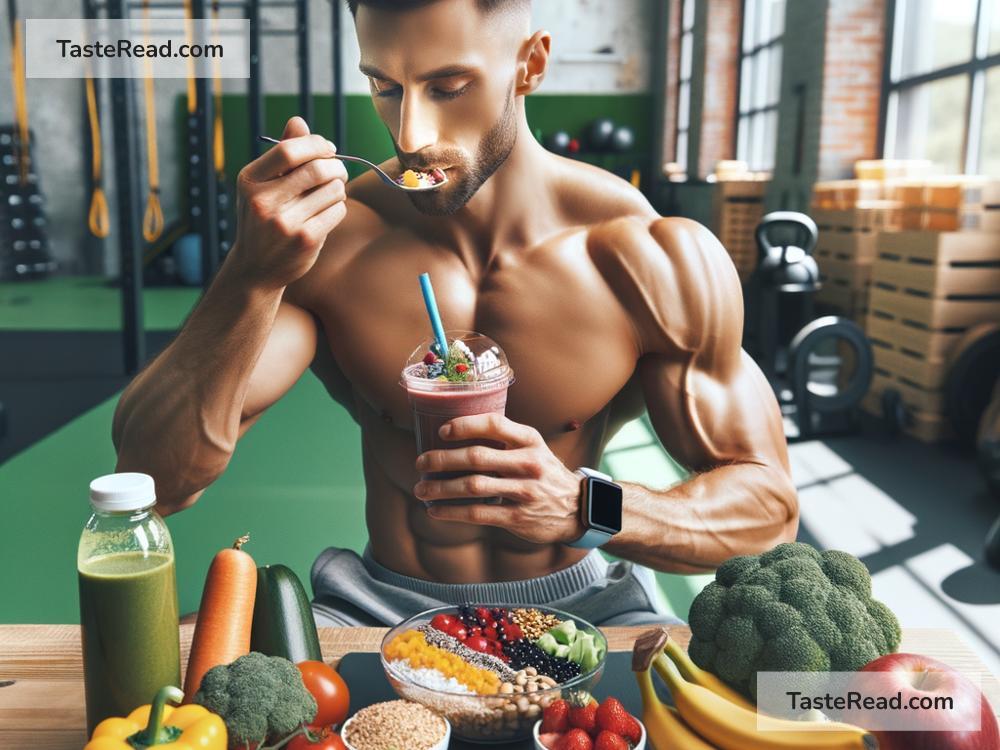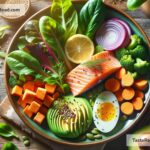The Benefits of a Balanced Diet for Athletes: Fueling Performance
When it comes to achieving great results in sports, practicing and working hard are essential. But there’s something else that’s just as important for athletes: their diet. What you eat can make a huge difference in how well you perform, how quickly you recover, and how strong you feel. A balanced diet is the secret to fueling your body for peak athletic performance.
In this blog, we’ll explore what a balanced diet is, why athletes need it, and how it can support their active lifestyle. Whether you’re a professional athlete or just love staying active, understanding the importance of a balanced diet can help you reach your fitness goals.
What Is a Balanced Diet?
A balanced diet is all about eating the right types and amounts of food to give your body everything it needs to function properly. It’s not about cutting out certain foods or eating too much of one thing—it’s about variety and moderation. A balanced diet includes:
- Carbohydrates: Your body’s main source of energy, found in foods like rice, bread, pasta, fruits, and vegetables.
- Proteins: Essential for repairing and building muscles, found in foods like meat, fish, eggs, beans, nuts, and dairy products.
- Healthy Fats: Help with energy and support your body’s cells, found in foods like avocados, nuts, seeds, olive oil, and fatty fish.
- Vitamins and Minerals: Boost your immune system, keep your bones strong, and ensure your body runs efficiently. These are found in fruits, vegetables, and other whole foods.
- Hydration: Water is crucial for every function in your body, especially when you sweat during exercise.
For athletes, eating from all these food groups helps provide the fuel and nutrients their bodies need to train hard, recover fast, and perform their best.
Why Athletes Need a Balanced Diet
Athletes put their bodies through a lot of physical activity. Whether you’re sprinting, lifting weights, swimming, or playing soccer, staying active takes a lot of energy. A balanced diet helps athletes in several ways:
1. Provides Energy for Performance
Imagine trying to drive a car without gas—it wouldn’t get very far. It’s the same with your body. Carbohydrates are the fuel that keeps you going during intense workouts and competitions. Eating foods like whole grains, fruits, and starchy vegetables provides long-lasting energy to keep you moving.
2. Helps with Muscle Repair and Growth
After training hard, your muscles need to recover and grow stronger. Protein helps repair tiny muscle tears, which occur during exercise, and builds new muscle tissue. Eating protein-rich foods after a workout is key to faster recovery.
3. Keeps You Hydrated
Staying hydrated is critical for athletes. Dehydration can lead to fatigue, headaches, and poor performance. Drinking water and eating foods with high water content—like watermelon and cucumber—helps replenish lost fluids.
4. Supports Strong Bones
Athletes frequently jump, run, and lift heavy loads, which puts pressure on their bones. Calcium and vitamin D, found in dairy products, leafy vegetables, and fortified foods, keep your bones strong and reduce the risk of injuries.
5. Boosts Your Immune System
Intense training can sometimes weaken your immune system, leaving you more vulnerable to illness. Eating a variety of fruits and vegetables packed with vitamins and antioxidants helps keep your immune system in top shape.
6. Improves Focus and Mental Performance
Being an athlete isn’t just about physical strength—it’s also about mental focus. Balanced meals that include omega-3 fatty acids (found in fish, nuts, and seeds) are great for brain health and concentration during games or workouts.
How to Maintain a Balanced Diet
For athletes, planning meals and snacks is crucial to staying on top of their nutrition. Here are some tips to maintain a balanced diet:
- Start Your Day Right: A healthy breakfast with eggs, whole-grain toast, avocado, and fruit can give you the energy you need to start your day strong.
- Eat Before and After Workouts: Before exercising, choose carbs like bananas or oatmeal to fuel your workout. Afterward, eat protein and carbs to help your muscles recover—for example, grilled chicken with rice and steamed vegetables.
- Stay Hydrated: Drink water throughout the day, especially before, during, and after workouts.
- Snack Smart: Choose nutrient-rich snacks like nuts, yogurt, or a piece of fruit instead of processed junk food.
- Listen to Your Body: Every athlete’s nutritional needs are different. Pay attention to how your body feels and adjust your diet as needed.
The Long-Term Benefits
A balanced diet doesn’t just help athletes perform better—it also supports overall health in the long run. Eating nutrient-rich foods improves your heart health, keeps your weight in check, and reduces your risk of chronic illnesses. Plus, it makes you feel good, both physically and mentally.
When you fuel your body with the right foods, you’re giving yourself the best chance to succeed in your favorite sports. You’ll have more energy, a sharper mind, and a stronger, healthier body. In the end, good nutrition is the foundation of great athletic performance.
Final Thoughts
If you’re an athlete—or simply someone who loves staying active—your diet is one of the most powerful tools to help you achieve your goals. A balanced diet isn’t about perfection; it’s about consistently eating foods that nourish your body and give you strength. By focusing on variety, moderation, and drinking plenty of water, you’ll be on your way to achieving peak performance.
So, the next time you sit down to eat, remember this: every bite you take can help fuel your fitness journey. Make those bites count!


